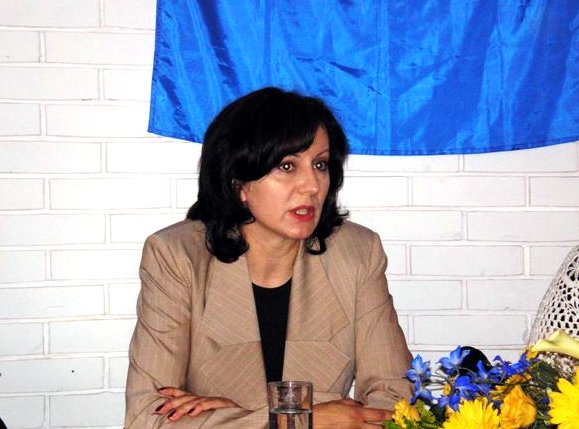
It is still unknown how many civil servants are redundant, says Nevenka Savić, State Coordinator for Public administration Reform.
She points out that there is no reason for this reform to be stopped by the political obstacles, not just because the reform is needed for the benefit of all citizens, but it is also BiH’s obligation towards EU in the Stabilization and Accession process. Savić also points out that Public Administration Reform is supposed to provide what every citizen wants- efficient civil servants, and simple and fast procedures. Those are the reasons for Savic not to justify EU representatives for letting the implementation of this important reform to be in the shadow of police or constitutional reform.
We can not and must not tackle what is written in the Constitution on competence division
NN: Even though you started your duty as State Coordinator in May this year, can you please tell us why is this reform in delay?
SAVIĆ: Endwise 2004 Council of Ministers took decision on establishing of the Public Administration Reform Office, and afterwards the Reform Strategy and Action Plan 1 were adopted. In September last year pre-election campaign started and the Government forming process took quite long time. In that period not many things could have been done, Governments were in technical mandate, and that is one of the biggest reasons for the little delay and postponing of our activities.
Strengthen Entity Coordinators
NN: What kind of cooperation do you have with the State and entity authorities?
SAVIĆ: The role of entity coordinator must be strengthened as soon as possible. We have good cooperation with them, but there is a problem concerning their status, because they are civil servants who have their primary job, so the duty of the Coordinator is on a voluntary basis. Stojanka Culibrk is Deputy Minister in RS Ministry of Administration, and Anto Cavar is also Associate Expert in FBiH Government. It is foreseen to strengthen the role of the Coordinator by being involved in only that position. Brcko did that by forming one department.
NN: Have some concrete projects started with the implementation after the adoption of Action Plan 1?
SAVIĆ: Certain projects are already ongoing. Our Office monitors many projects finance by the Donors such as UNDP, European Commission, and others. However, establishing Public Administration Fund would provide means for this reform in particular.
NN: Does it mean that the Fund of, as it is expected, 4, 5 million euros, would make the stronger tempo of this reform?
SAVIĆ: That is what we are hoping for.
NN: There are estimations that there is a big bureaucratic apparatus in BiH. Will this reform indicate the civil servants redundancy number?
SAVIĆ: Of course, that is one of its main tasks. There are efforts pointed to the training of Civil servants and theirs obtaining of experience which is applicable at all levels of authority. Civil servants database, which will ensure staff fluctuation, will be established, and it will also help in monitoring of the progress and in setting up of the criteria for certain positions. All this should be a precondition for more efficient work, and, in that sense, reduction of the administration.
NN: Is there any estimations on civil servants redundancy? Is it known how many of them are currently working in the Administration?
SAVIĆ: We do not have such information. Civil Service Agencies in BiH must help us in that respect by installing database so we could have information on how many employees are there in all levels.
NN: Which levels of authority this reform will comprise?
SAVIĆ: According to our Action Plan, all the measures comprise State level, Entity levels and the level Brcko district. Some measures are meant for the cantonal levels as well, but the municipal level is not under this reform. However, some measures are pursuing from the Entity level all the way to the municipalities in a sense of introduction of the information systems and staff training. So the repercussion of what is brought on the State and Entity levels will for sure impact the lowest level of authority as well.
NN: Is the constitutional reform connected to this one and can it have an impact on this reform in any way?
SAVIĆ: No. We can not and must not tackle what is written in the Constitution on the competence division. We mustn’t tackle the competence of certain authority levels at any price, and we must respect individual progress in some areas. Some Entity, for example, went further on and there is no need for it to wait for other parts of state to reach that stage.
NN: Is it possible to use successful model of some European State’s administration and to apply it in BiH?
SAVIĆ: I think that is out of the question due to our organisational structure. However, some particular experiences and practices can be used, which is exactly what we are doing. We had a study tour to Austria where we saw what have been done in the area of state administration progress in the field of information technologies. Something like that is far away for us, but we can still use it as an example. Austrians will visit us next week and we will see what projects in the field of information technologies we can use.
For Nezavisne novine:
Marija TAUŠAN
